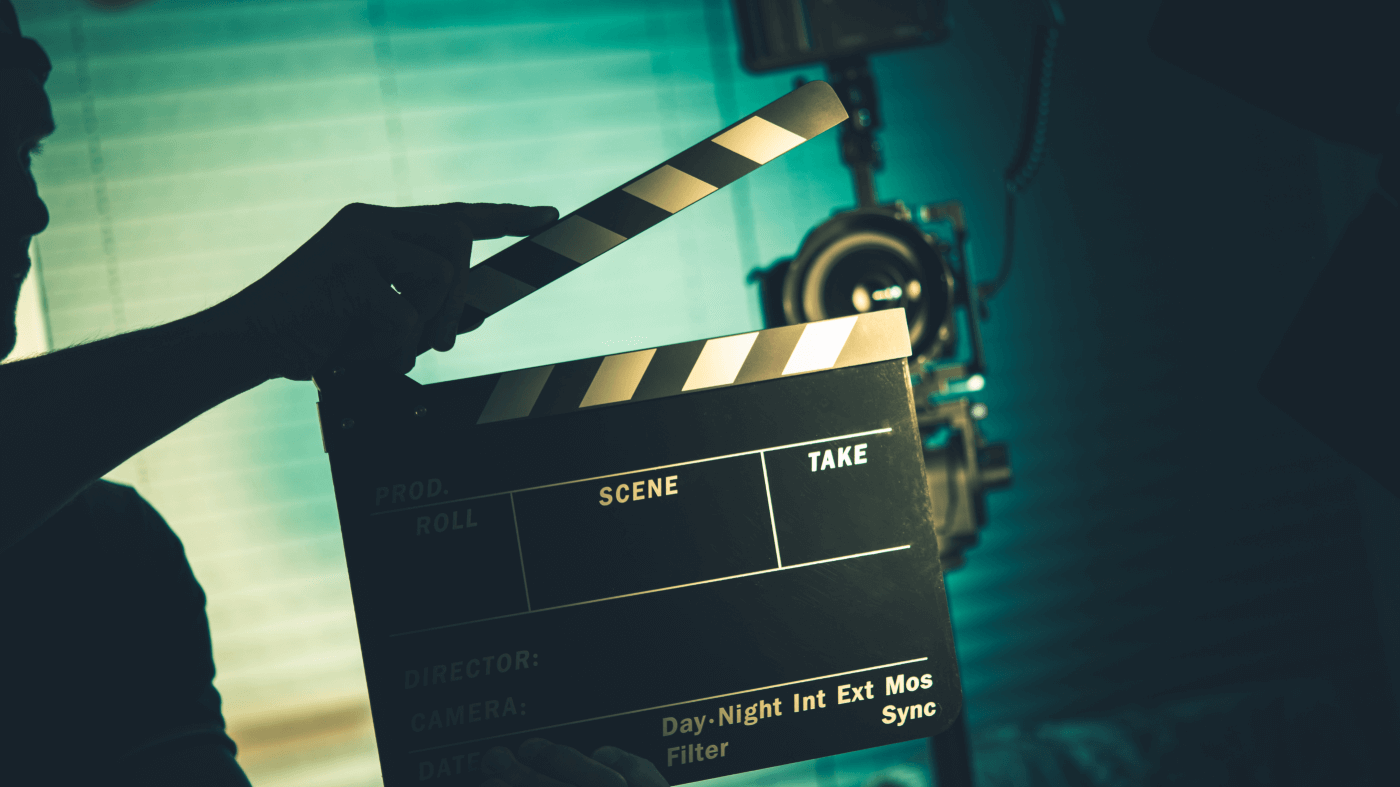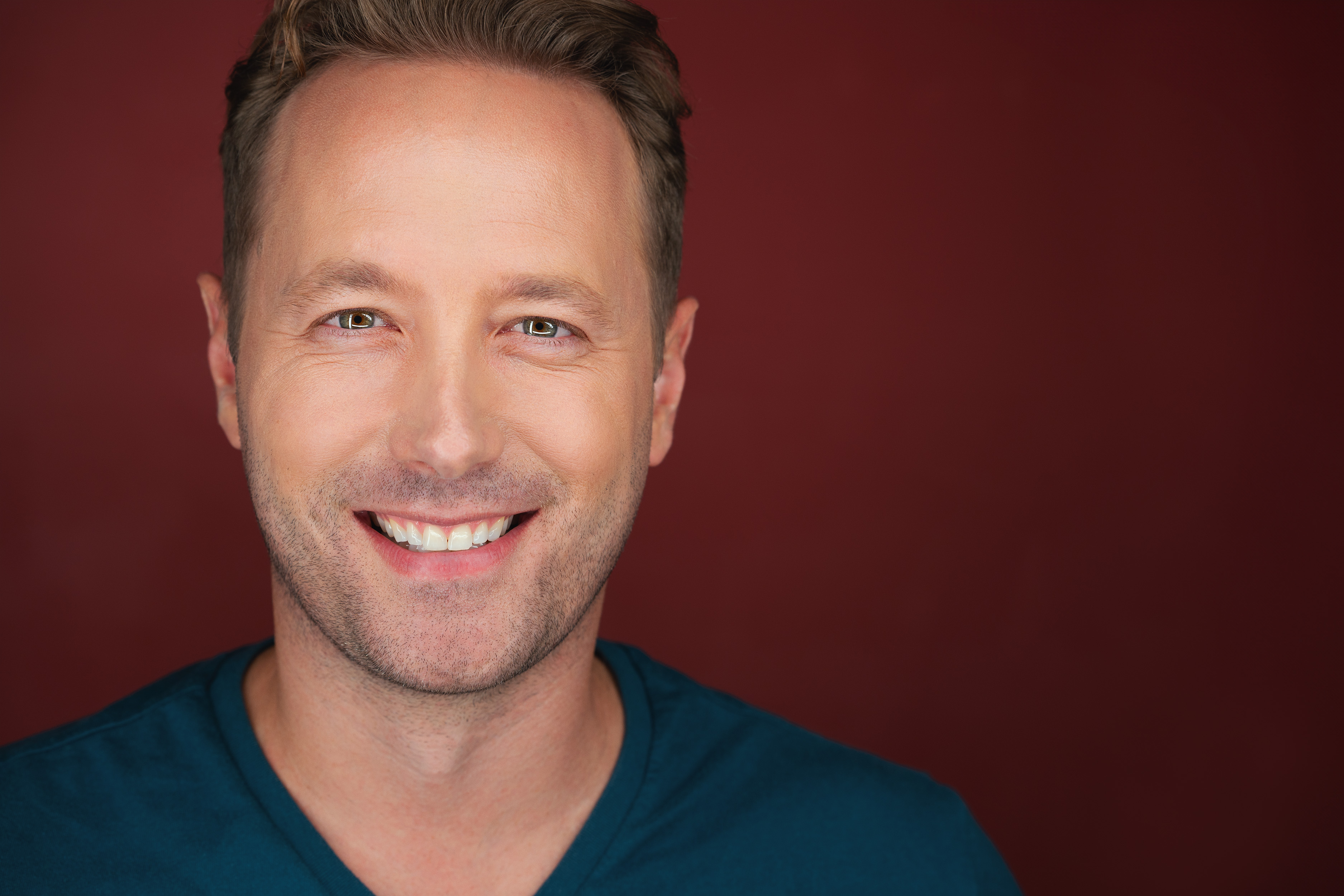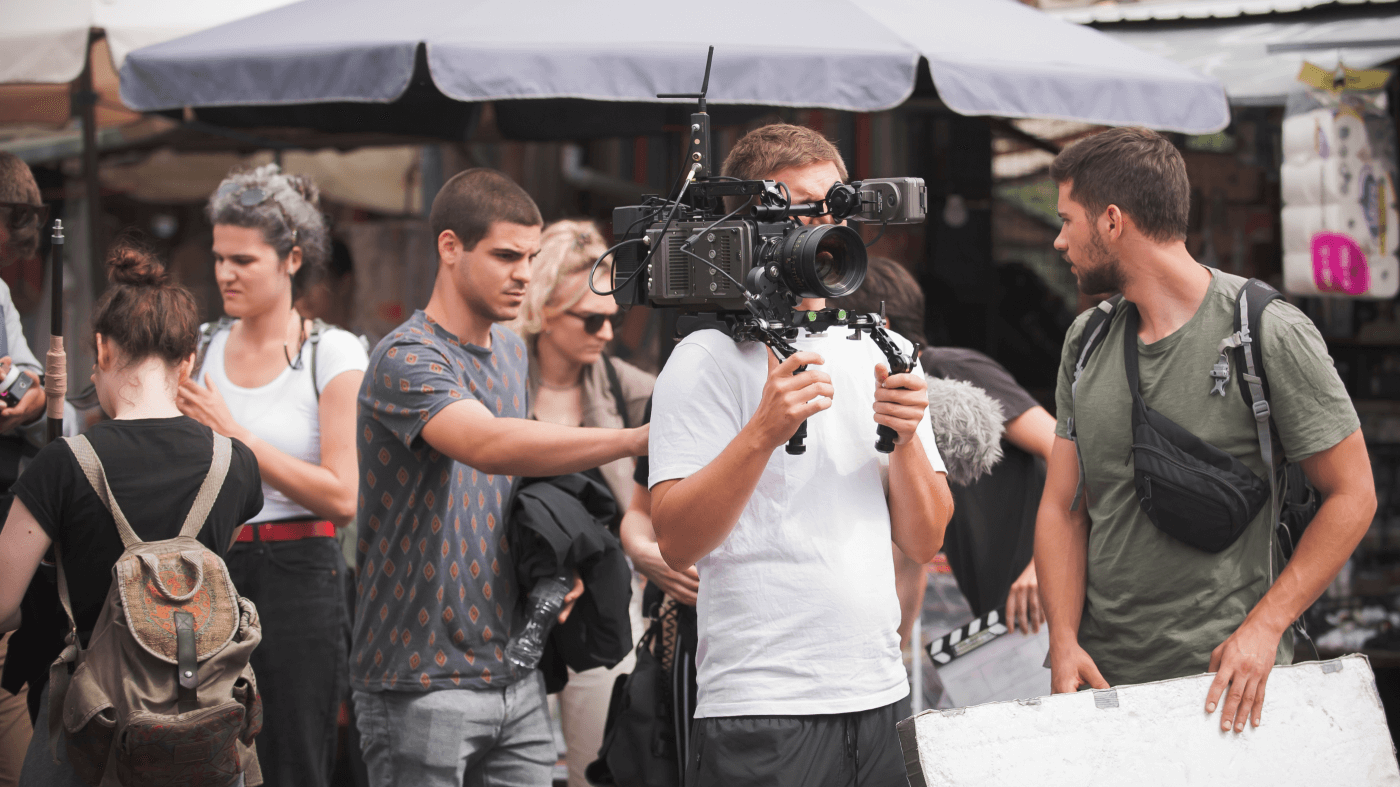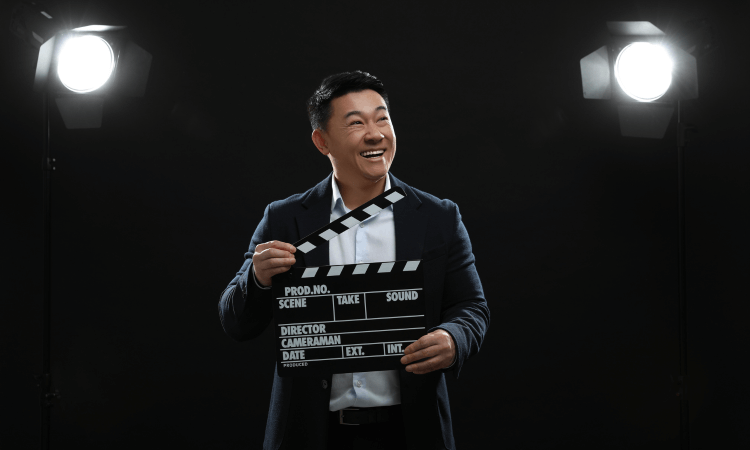Yesterday I talked about the many benefits of booking indie films. BUT HOW DO WE DO IT?
Just like everything else in this industry there are a million ways to get there, but I have a pretty good idea of what helps. I’m an award-winning actor/writer/filmmaker whose films have been distributed worldwide by Warner Brothers, Netflix, Showtime, Starz, Hulu, Sky, Hallmark, Lifetime, LMN, Amazon, Apple, and many more. Here are my tips.
How do you book indie film roles?
In many ways, the process is very similar to how you would book any other role, and many of these tips can be used to book other roles, but if you apply these tips to your strategy for booking indie film specifically, I believe you have a stronger chance of being successful faster.
1. Strong Package (Training, Headshot, Resume, Reel)
Booking any role starts with a strong package. This is always the first step. A strong package doesn’t mean you have to have 100 credits, thousand-dollar headshots, or tons of reel footage, but it does mean that what you do have has to be professional quality and showcase you well. A strong package includes the following things:
- Training – This is the first step of the first step. Simply put, if you have no training yet then you are not ready to submit to projects. And training has nothing to do with talent. You can have all the talent in the world, but training is necessary to gain the knowledge you will need to become a professional actor. So, start with training. You can train at AVS or another studio, but train. This is where you will learn the craft of acting, more about yourself as an actor, what roles you fit, what your strengths are, your any weaknesses you need to work on, audition technique, etc., but you will also professionalism on set, and so much more. Other than the craft itself, training will also teach you a necessary level of professionalism and basic industry knowledge that you will need to be successful in the industry. When you are hired for a role, it is expected that you know a lot of the basic knowledge that you will get from training.
- Headshot – A professional headshot is a basic requirement for all actors to booking anything really and it must be shot by a professional headshot photographer. It should also be edited and retouched professionally. At minimum you should have 1 theatrical headshot and 1 commercial headshot. That doesn’t mean it has to break the bank though. We know headshots can be expensive, in many cases costing between $500-$1,000, but they are a necessary investment in your acting career and so to help make it more affordable for actors, we consistently offer heavily discounted headshots (usually only $200 with hair & make-up) at AVS with professional photographers. We don’t want cost to prohibit your growth.
- Resume – your resume is also a basic requirement. But don’t worry, you don’t have to have many credits. Everyone starts somewhere. It does need to be professionally formatted though. It seems so simple, but a properly formatted resume will automatically set you apart from what will be perceived as “unprofessional” actors that have poorly formatted resumes. It’s just another asset that puts you in the “professional” category and will get you that much closer to booking the roles you want. If you don’t have many credits (or any credits), don’t lie, put your training. That’s the 2nd most important thing to your actual credits, and in some cases just as important. It’s okay to have no credits and just have a training section. Everyone understands that actors aren’t born with credits. The professional format and great training will be enough at first. If you need a refresher on proper resume format, download our FREE resume template HERE. *We’ve given this out for a while and you’d be surprised how many of our actors are still using improperly formatted resumes. Please take a look and make sure your resume is in the proper format.
- Reel – All of the above items are what I would call “necessities” for any actor, but your acting reel is easily your MOST IMPORTANT ASSET in your acting package. In my opinion, it is a MUST. It’s literally a trailer for YOU. A headshot is nice, a resume is just text, but an acting reel shows the exact thing someone is looking to hire you for, YOUR ACTING. Think about how important that is. When I’m casting a film or other project, if an actor does not have an acting reel, they are not even looked at. That’s just the truth. Why? Because I automatically assume that the actors that have a reel are more professional AND I can see immediately their acting. It’s so much easier and faster to see if someone fits a role and with thousands of submissions per role, most casting directors and filmmakers can’t afford to consider actors without an acting reel. Many of you may be saying right now, “but I don’t have any footage yet.” That’s fine and totally understandable. Again, everyone starts somewhere, but don’t use it as an excuse to prevent you from being considered for the roles you should booking. The thing about your reel footage is it has to be professional. Self-tapes, poorly shot student films, etc. won’t cut it. Those defeat the purpose of a reel and just make you look unprofessional. If you don’t have footage, the best option is to film your acting reel. Because acting reels are so vital to an actor’s career, we’ve custom built a film studio with 10+ film sets and our award-winning team shoots your acting reel for you. Many acting reels can cost well over $1,200, but to make it more affordable for you, we’ve developed a heavily discounted PROMO PACKAGE where you can often get your acting reel scene PLUS an IMDb short film credit. This way, you’re building your reel, resume, and IMDb page. Whether it’s with us or another studio, we recommend shooting an acting reel to get professional footage that will help you book work.
2. Submitting Correctly (Put your best foot forward)
Once you have your package ready. It’s time to submit to projects, but it’s not just about what you submit to it’s HOW you submit. Here are a few tips:
- ALWAYS have and include video footage in your submissions. As I mentioned above, having reel footage will help you be in the pile of actors that actually gets looked at out of all of the submissions.
- ALWAYS include a “Note” to the casting director whenever the casting call allows you to. In the note, list any “value adds” that you can. This can be things like recent work “I just starred in a short film that premiered at this festival,” or why you are right for this role “This role is perfect for me, I’ve been riding horses since I was 10 years old,” or if social media presence is important to a particular casting call and you have a strong one say that “I have a total social following of “X” on all platforms.” Including a note is just another way to make yourself stand out from other actors in casting call submissions.
- Be selective with which headshot(s) and video footage you submit to each project. If it’s a thriller, don’t use your commercial headshot. If it’s a comedy, and you have a comedy reel, submit that.
- Submit as early as you can.
- Submit EVEN if your agent or manager already submitted you. There are mixed feelings about this, but after being on both sides of casting calls, I can tell you that if I see that your representation has submitted you and then you submitted yourself (WITH A NOTE), I not only see your face twice, I really know how much you want this role and it makes me more likely to cast you. *Some casting directors will tell you not to submit twice, usually because they don’t want to be bombarded with submissions. I get it. BUT I care about YOU booking the role.
3. Make Relationships
It should be no surprise to anyone that this is a relationship business. So, foster the ones you have and build the ones you need. You may say “Well, what if I don’t have any connections?” I hear that a lot. And the answer is, make them. I started with almost no connections, but I’ve built hundreds of strong, meaningful connections that over time helped me book roles, get meetings, sign with agents or managers, get distribution, etc.
In order to make relationships with writers, directors, casting directors, agents, managers, and other actors, you have to go where they are. Here are just a few valuable places you should be going to make relationships:
- Film Festivals
- Acting Classes
- Film Markets (AFM, Toronto, etc.)
- Premieres
- Q&As
- Industry Screenings
- Seminars
This is your business. Wherever you go, have a business card. Mingle. Let people know who you are, what you’re doing and what you’re interested in doing. Get excited about your projects and theirs. Share your passion. Exchange numbers. Record people’s professions right in their contact when you put it in. And then later, make a point to follow up. Grab coffee. Form a relationship. This may all sound artificial and some aspect of it is, but the truth is, you should be trying to make relationships with people you actually like. It’s a relationship business largely because people who share common passions, interests, and ideas tend to work well together. People that enjoy each other’s company tend to work well together. So find the people you think you’d like to work with and get along well with and go from there. Which takes us to my next point…
4. Find Your Champions
Similar to making relationships, but distinctly different, “finding your champions” can be a game changer for you. Early in my career, a mentor told me this and he couldn’t have been more right. No one gets where they want to go alone. Film, TV, acting, it’s all a team effort. Hundreds, sometimes thousands of people come together to create art in this industry. We can’t do it alone. We all need help. And especially when we’re starting out finding mentors and “champions” or people that are fans of you and your work can help immensely. They can open doors you can’t, give you knowledge you didn’t have, give you confidence you need, and help you avoid pitfalls they made. Finding your champions can make all the difference.
5. Make Your Own!
In a post about how to get work in indie film, I would be remiss if I didn’t mention the obvious, Make Your Own! It’s what I’ve done many times, it’s what many of my friends, working actors, and celebrities have done and continue to do. And there’s a big reason for it. You don’t have to wait, and you can make EXACTLY what you want and play the exact role you want. And most people say, well I don’t have millions of dollars to make a movie or any connections to raise enough money to make a movie. Well, you don’t need to. People laugh or call me crazy when I tell them that with today’s technology you can make a feature film for $10,000. I’ve had several personal friends and collaborators do this, get distribution, make money and further their careers. I’m not saying it’s easy. It’s incredibly difficult, but if you’ve used all of the above methods and have created a community of friends and colleagues that are filmmakers, writers, maybe distributors, etc., it’s definitely possible. If you’re the kind of person that likes to take their career into their own hands, this might be an option for you.
Thanks for reading, I hope you found this article helpful. As always, at AVS we’re rooting for your success and we’re here to help. Have questions about a class, a VO or acting reel? Email us at info@actingandvoicestudios.com.
Kent Moran




